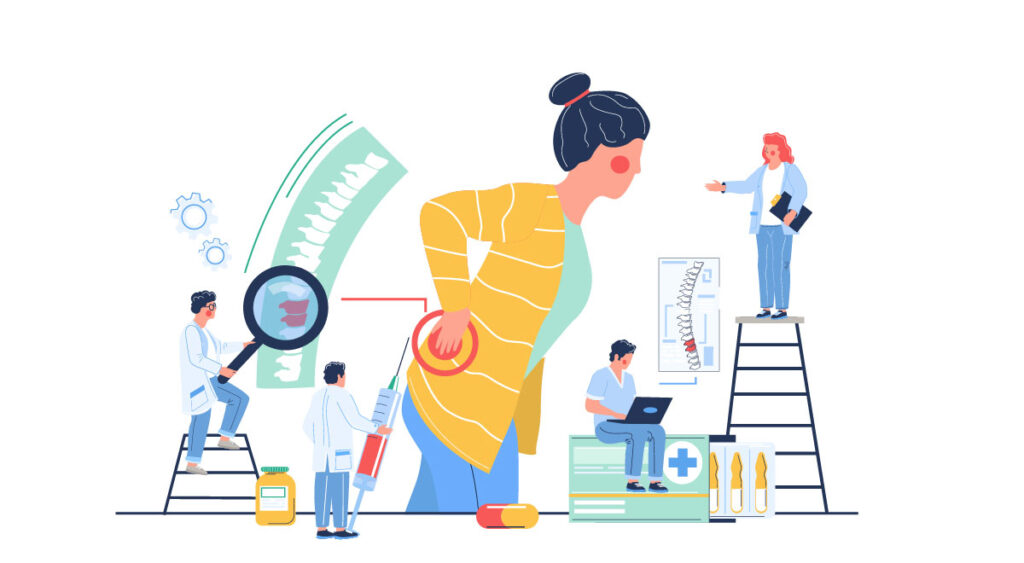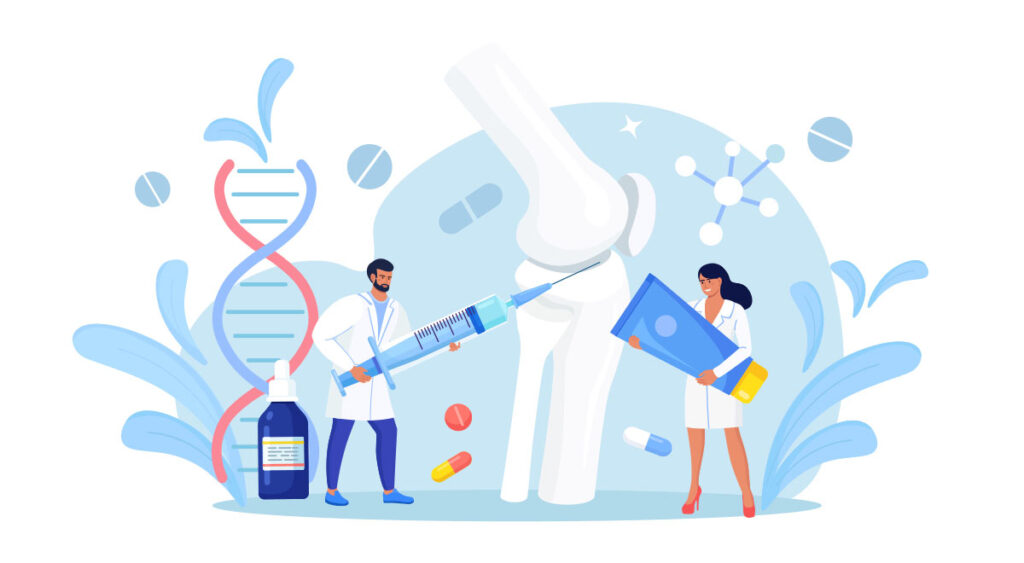Muscle pain, also known as myalgia or myofascial pain syndrome (MPS), is the result of inflammation in the body’s soft tissues. Muscle pain can be brought on by a broad number of issues, injuries or conditions, and experienced as a random sharp pain or a steady, deep ache. Individuals may have localized pain in a specific area, or pain may be felt systemically all over the body. Soreness in the muscles may be short-term or chronic.
Here are a number of potential causes of muscle pain:
Strains, Overexertion & Injuries
These are the most common causes of muscle pain. In these instances, soreness in muscles is typically limited to a few muscles or a small area of the body.

Strains happen when tendons are stretched beyond their normal capacity, such as during a fall or a sudden twisting motion, and induce pain that may last a few days or longer. Overexertion, where the body is pushed too hard, such as long periods of standing or a heavy gym session, may cause soreness in the muscles for a day or two. Injuries or hard blows may induce bruising, swelling and muscle pain. Other types of injuries resulting in muscle pain include abdominal or back strains, broken bones, overuse through repetitive motion and tendinitis.
Stress & Tension
Psychological or physical stress may take its toll on the body in the form of myalgia. This muscle pain is caused because the body tenses in response to stress as a protective measure against potential injury. Longer lasting or chronic stress can create a continuous state of muscle tension, often inducing soreness in the muscles. This type of pain is typically felt most in the shoulders, neck and jaw.
Poor Posture Can Cause Muscle Pain
Standing, sitting or exercising with poor posture can strain certain muscles, inducing muscle pain. This soreness in the muscles is often felt most in the upper and lower back.
Infection
Myalgia that is experienced throughout the whole body is most often caused by an infection, such as the flu. Other infections include pneumonia, malaria, polio, Lyme’s disease or other bacterial or viral infections. Soreness in muscles may be accompanied by other symptoms such as nausea, fever and swollen lymph nodes.
Medication
Muscle pain may also be a side effect of certain medicines, treatments or drugs. These could include statins, ACE inhibitors, chemotherapy, radiation therapy or cocaine. In some cases, this is because muscle pain receptors are activated, or inflammation around the cells of the muscles is induced.

Dehydration
Not drinking enough water in general can result in muscle pain or cramping. Dehydration post-exercise can also increase soreness in muscles.
Lack of Sleep
Poor sleep robs the body of important recuperation it needs to function optimally. Lack of sleep can therefore lead to the body feeling run down, where myalgia is often experienced.
Nutritional Deficiencies
Muscle pain or aches may be the result of nutritional deficiencies in the diet. Lack of vitamin D is known to cause muscle pain, and anemia may result in cramping and soreness in the muscles.
Autoimmune Diseases
The body’s immune system may mistakenly perceive threats in the body and attack healthy cells; this is known as autoimmune disease. Many of these conditions, such as multiple sclerosis, lupus and polymyositis, may induce muscle pain.
Neuromuscular Disorders
These type of disorders, such as muscular dystrophy or amyotrophic lateral sclerosis (ALS or Lou Gehrig’s disease), specifically affect muscles and the accompanying nerves that control them, often causing muscle pain and weakness. Many incidences of muscle pain are not serious and a straight forward treatment plan is usually successful. However, you should seek medical assistance when soreness in the muscles is accompanied by chest pain, fever, bladder control issues, muscle weakness, pain that is new or gets worse, or numbing/tingling in the limbs.
